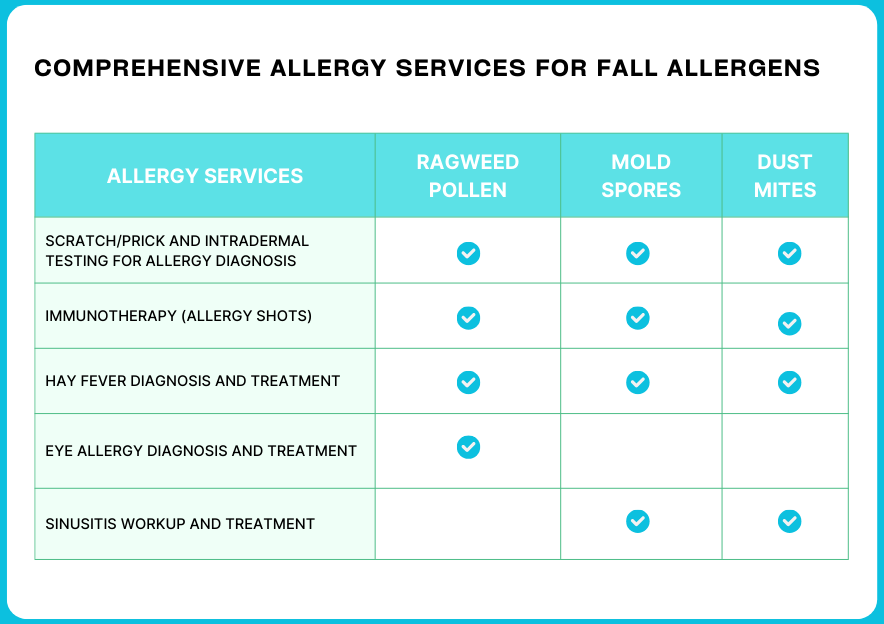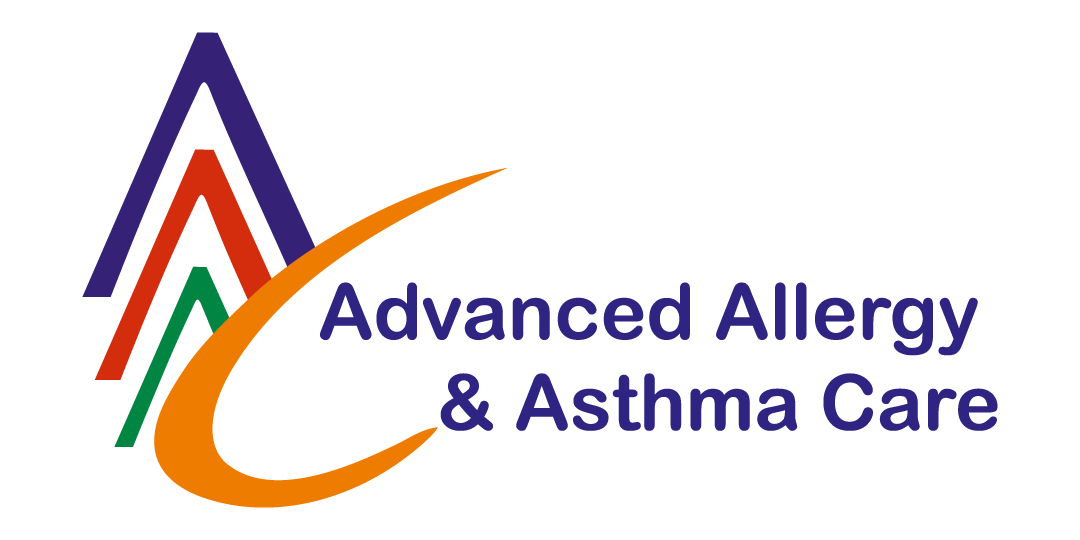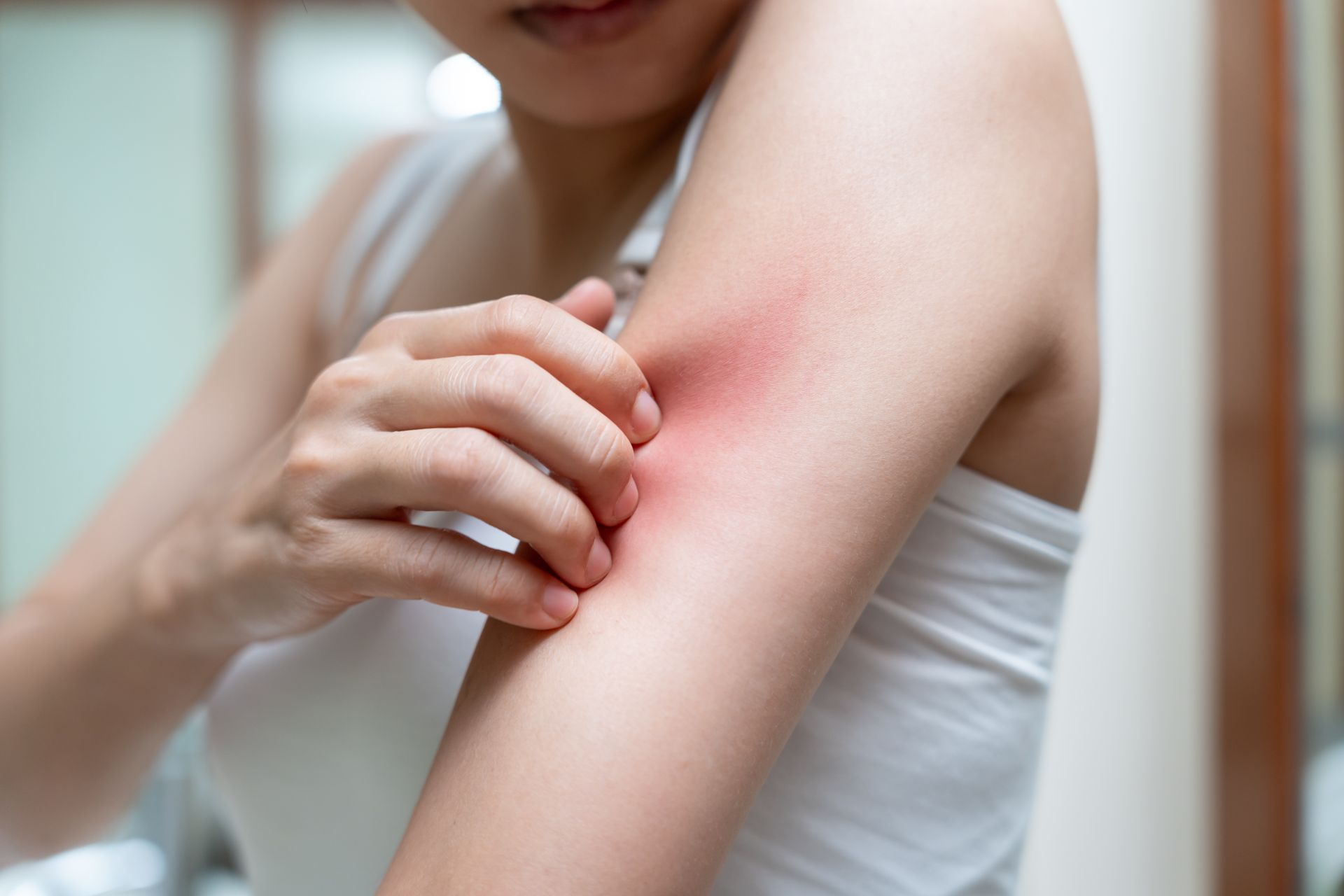Fall Allergy Forecast for Tampa: What to Expect and How to Prepare
Fall is a beautiful time in Tampa, but it also brings an uptick in allergens that make life uncomfortable. Whether mold grows in damp leaves, ragweed pollen in the air, or dust mites indoors, these trigger allergy flare-ups, impacting overall health.
But with a little foresight, you can prepare and protect yourself and your family. By staying updated on the allergy forecast in Tampa, you can take proactive measures and enjoy the season without the allergies holding you back.
Discover What’s Behind Your Sneezes
Common Fall Allergens in Tampa
You might want to try managing your allergies yourself, but seeking professional guidance is best. Local doctors are familiar with the seasonal allergens in the area and use this specialized knowledge to treat patients.
When Sherri Candelario moved from Seattle to Florida, she knew living with allergies would need a proactive approach. In Seattle, allergists were booked months in advance, making it difficult to get timely care.
In Florida, Sherri
contacted the experts from Advanced Allergy and Asthma Care. After an assessment, she received a personalized action plan during her same-day consultation.
To effectively manage your allergies, take charge like Sherri and reach out to an allergist to ask questions (e.g., what are common fall allergies). Additionally, make use of the guide provided below.
Ragweed Pollen:
Pollen from ragweed is a notorious allergen prevalent in late summer and early fall.
- Ragweed pollen is rampant in late summer and early fall, peaking during this time.
- Pollen from the ragweed plant can significantly impact daily life. This light pollen can travel for miles, making it difficult to avoid exposure.
Mold Spores:
Mold spores can also trigger allergies, particularly during rainstorms and flooding.
- Decaying leaves during the rainy season in West Central Florida, including Tampa, increase mold growth.
- High humidity levels exacerbate mold proliferation, particularly in areas with poor ventilation.
Dust Mites:
Tiny dust mites grow indoors, specifically in areas with high humidity levels.
- Spending more time indoors due to cooler weather can increase exposure to dust mites.
- Dust mites flourish in warm, humid environments like bedding, upholstery, and carpets.
Being aware of seasonal allergies in Tampa, you can prepare for these allergens ahead of time.
Allergy Symptoms and Diagnosis
Understanding the allergens is important, but so is recognizing the specific symptoms. To assist you, here's a brief list of common symptoms for your reference.
Ragweed Pollen Allergy Symptoms
Individuals sensitive to ragweed may experience a range of symptoms, including:
- Sneezing: Frequent and uncontrollable sneezing is a common reaction to inhaling ragweed pollen.
- Runny nose: Nasal congestion and a runny nose can occur as the body attempts to expel the allergen.
- Itchy facial parts: Allergic reactions involve irritation and itchiness in the eyes, nose, and throat.
- Coughing: Postnasal drip from a runny nose can cause coughing, which may worsen at night or during physical activity.
- Fatigue: Persistent allergy symptoms can lead to fatigue and general malaise.
Mold Allergy Symptoms
Symptoms of mold allergies consist of:
- Sneezing: Like ragweed allergies, mold exposure can trigger frequent sneezing.
- Coughing: Individuals may experience a chronic cough, particularly after inhaling mold spores.
- Itchy eyes: Allergic reactions to mold can cause redness, swelling, and itchiness in the eyes.
- Stuffy nose: Expect nasal congestion and discharge in response to mold spores.
- Wheezing: Mold exposure could worsen symptoms for individuals with asthma or respiratory issues. This may result in wheezing and difficulty breathing.
Dust Mite Allergy Symptoms
Increased indoor activity may lead to more exposure to dust mites. This results in symptoms such as:
- Sneezing: Repetitive sneezing occurs typically in response to allergens from dust mites.
- Runny nose: Dust mites can cause nasal congestion and discharge like other allergens.
- Itchy and watery eyes: Allergic reactions to dust mites often manifest as itchy, red, and watery eyes.
- Coughing: Persistent coughing may occur, especially at night or in the morning when dust mite exposure is highest.
- Asthma symptoms: Exposure to dust mites can lead to asthma symptoms. This includes heightened wheezing, tightness in the chest, and difficulty breathing.
Diagnosis of Allergies

Explore our targeted allergy services for the fall season
Finding a board-certified allergist to help you
prepare for the Tampa allergy season is critical. These professionals can access the latest advancements in diagnosing and treating fall allergies.
Here's what to expect on your first consult:
- Medical history: Talk to your allergist or immunologist about your allergy symptoms. They may ask about your family history of allergies, so check with your family members first.
- Physical examination: The allergist will examine and identify signs of allergic reactions. Wear comfortable clothes that allow easy access to your red patches or bumpy skin.
- Allergy testing: Skin pricks or blood tests help pinpoint allergens causing your symptoms. Before the appointment, discuss the test procedure with younger patients to relieve anxiety during the test.
Proactive Allergy Management

Consider starting treatment with an allergy specialist in the early fall. These specialists are equipped to perform diagnostic procedures. They can also prescribe medications and topical products to relieve allergic reactions.
Take measures against indoor molds, specifically for homes affected by
flooding due to rainstorms. When removing molds, avoid using cleaning materials with strong chemicals that trigger your allergies.
Use Tampa allergy forecast tools such as those provided by Pollen.com (be sure to set the location as "Tampa, FL"). Information from these tools can help you schedule your treatments. It should also guide you in finding time for certain outdoor activities. For example, you can reschedule lawn mowing if the ragweed pollen is at a moderate or high level.
“Try to keep your indoor environment as pollen-free as possible.
You can’t control your outdoors, but you can control your indoors.”
Dr. Rima Sanka for ABC Action News Tampa Bay
Advanced Allergy and Asthma Care
Experience Tailored Allergy Care This Fall (And Beyond)
Understanding your symptoms is key to managing your allergies during high pollen and mold seasons like fall. This approach can improve your quality of life so that you can enjoy your Tampa adventures all year round.
Get ready to experience the vibrant colors of fall with Advanced Allergy and Asthma Care! Our team is committed to providing complete care plans tailored to your needs. With convenient clinic locations, our certified allergists address your concerns in the order of your preference.
Rediscover the joy of fall in Tampa! For expert allergy solutions, contact us at (727) 544-8100 or (813) 476-3394.
Uncover Your Allergy Triggers Today




